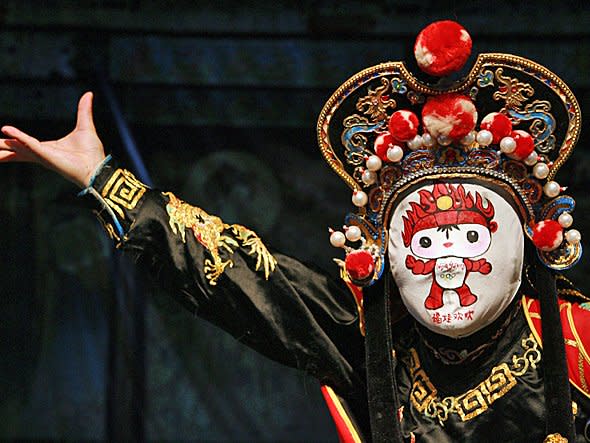Here's The Main Reason People Think The Chinese Economy Is Screwed

Bearish sentiment on China has returned. Recent economic data has disappointed markets and last night's HSBC Flash PMI showed that manufacturing contracted for the first time in seven months.
Remember, while China has been trying to rebalance its economy towards domestic consumption, it is still largely driven by investment and exports.
But "the main bear story for China," according to CLSA's Christopher Wood is that it "is taking more and more credit growth in China to deliver less economic growth."
Wood says that this argument only grew legs with the release of the latest total social financing (TSF) data. TSF includes trust loans, entrusted loans, FX loans, bankers’ acceptance bills, corporate bonds, and non-financial stock sales. This was up a whopping 81% on the year to 1.75 trillion yuan, but down from 2.54 trillion yuan the previous month.
In the first four months of the year, TSF was up 63% on the year to 7.91 trillion yuan. From Wood:
"The increase in social financing data relates to the increase in the volume of such activity. The annualized growth in terms of the overall aggregate is harder to calculate since the PBOC has only issued social financing data since 2002. Still an estimate would suggest that in aggregate terms social financing outstanding is growing at an annualized rate of around 22%. This is clearly still well above nominal GDP growth of 9.6% YoY."
"This raises another issue. That is that growth rates of China credit have been bordering on the scary since the massive 2009 infrastructure stimulus prompted by the Lehman bust and the related collapse in Chinese export growth. Thus, aggregate social financing outstanding, which remember includes bank lending, has soared from an estimated 121% of GDP in 2008 to 192% of GDP in April. Another way of looking at this, as highlighted to GREED & fear by one contact, is that the Rmb64.4tn surge in social financing since 2009 is equivalent to 14% of 2012 world nominal GDP."
Deutsche Bank's John Horner also shared the sentiment. He recently wrote that more weak data out of China showed that "heighten concerns of a 'broken' Chinese growth dynamic that is no longer responding to rapid credit expansion."
So the two concerns stemming from this are 1. The Chinese central bank is running out of ways to help bolster growth. 2. The Chinese economy is "long addicted to debt-financed investment-driven growth," according to Wood and needs to rebalance.
More From Business Insider

